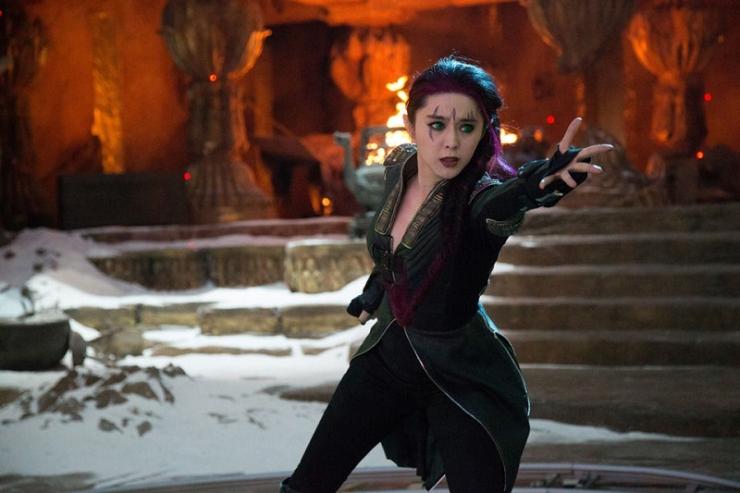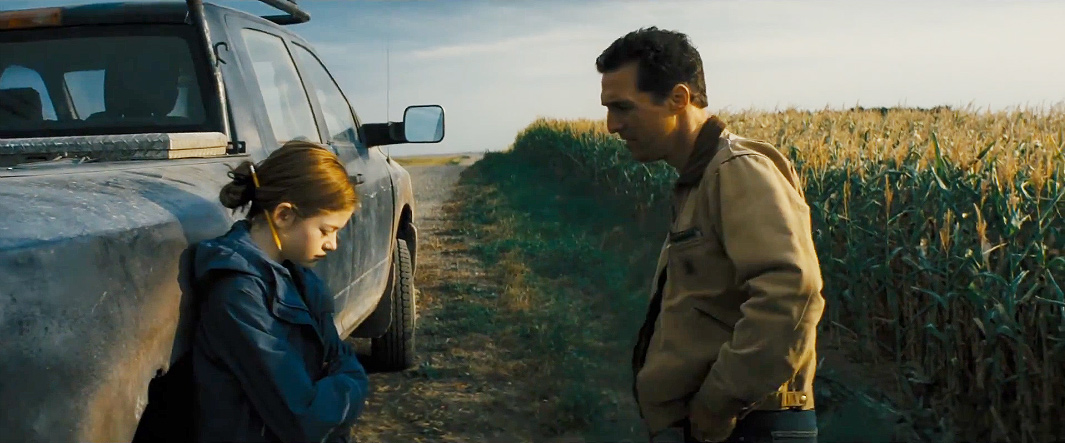Bryan Singer, 2014
 Light Spoilers
Light Spoilers
Saw this Saturday afternoon as the final part of an X-Men watching spree. I am glad I took the time to catch up with the old flicks, some of which I hadn't seen in several years, as it ultimately served to enrich the entire experience. I watched X-Men, X2, X3: The Last Stand, X-Men: First Class, The Wolverine, and finally, this latest installment. On a technical level,
Days of Future Past is tough to beat, bringing the latest and greatest in special effects, and arguably the strongest cast to the table; the screenplay is also the best of all the films as far as I am concerned. That doesn't mean it is without flaw, though. The middle section suffers from some minor pacing issues that kind of nagged at me here and there. I think the film spends just a bit too much time moping around in the middle section, but just a bit! The material was necessary, but could have been trimmed slightly to keep things moving. I know X3 gets a lot of flak, but that film is actually paced the best of the bunch, even if it crashes and burns in spectacular fashion by the third act. The score is also better in X3, with a dramatic, memorable melody that enhanced the emotional component of some scenes.
Days of Future Past has an adequate score, but I can't recall anything memorable about it. For instance, none of the scenes reached the excitement and elegance of the battle of wills between Dark Phoenix and Professor X from X3, which is one of my favorite scenes in the entire series. X3 has plenty of issues, but that scene is pure brilliance.
Enough about the inferior X3 though, because on some levels,
Days of Future Past just totally rocks, and soars to heights only imagined by its predecessors. Having pretty much no exposition in regards to who people were or what their powers were was a breath of fresh air. I am sick to death of origin stories and all that comes with them, so it was nice to see a film by a director that recognizes that his audience is familiar enough with the world and characters of the films to just get right to it. And get right to it, it does. The opening sequence is dark and desperate; gone are the hands-on-hips heroism and snarky one-liners. The "Future" X-men are under attack by foes they clearly can only hold at bay for a few minutes before being overcome. Their solution to the problem of an enemy that can't be beaten had me scratching my head for a sec, but I didn't waste too much time pondering exactly how it could work - that's not why I bought this ticket! Most mutants are dead or imprisoned, and the raggedy bunch we see have the aspect of doomed prey fighting for their lives. It's clearly understood that the war is over, the mutants have lost, and it's only a matter of time before the X-men follow suit. Luckily, time just happens to be on their side. A plot is hatched to use time travel to forever alter the course of history in an attempt to stop the war before it ever starts. Yes, we have seen this before - it's not the most original premise, but more a re-telling of a classic sci-fi trope.
After watching all the films close together, I worried a bit about continuity, because there were already some glaring holes when you considered all the other films together, but Singer et al. take a page from the Abrams book, using time travel to smooth out the rough spots and course-correct, and like
Star Trek a few years ago, it is mostly a success. One of the nice surprises about
Days of Future Past is that after i saw it, I felt the previous films, especially X2 and First Class, were actually enriched by the retroactive continuity updates. When we saw those films years ago, we were led to understand that Eric and Charles had a complex, checkered past - now we know why. Singer wisely focuses most on his best talent, with Michael Fassbender's Magneto, Jennifer Lawrence's Mystique/Raven, and James McAvoy's Charles Xavier getting the most screen time, followed closely by series standby Hugh Jackman as the ever-recognizable Wolverine. We know Jackman can bring it, and now pretty much IS Wolvie to many of us, and J Law can participate in a shampoo commercial and get nominated for an Oscar, but it's Michael Fassbender that just owns Magneto, stealing every scene he is in. Ian McKellan is a great actor, but I've never felt that he had either the stature or the simmering anger necessary to play Magneto properly. Fassbender just knocks it out of the park.
At its core,
Days of Future Past is a human drama about the battle for someone's soul; something other X-films have aimed for, but that none have achieved quite so well. I think this is an achievement for a comic film of this magnitude, daring to parse out a final act that isn't massive set-piece after massive set piece with more and more energetic and triumphant battle sequences hammering audiences until their eyes glaze over. This shows a maturation of Singer's style, and from what i can tell, he actually cares about these characters - they aren't just action figures for him to to use in kinetic action sequences full of CGI. There is still a climax, one that is complex and elegant in its handling of time travel and tension, but Singer keeps things restrained enough that the character play stays front and center throughout, in no small part due to the wonderful cast of supporting players like
Game of Thrones' Peter Dinklage,
Inception's Ellen Page, and
American Horror Stories' Evan Peters, with a scene stealing performance as Quicksilver. This scene, set to Jim Croce's
Time in a Bottle, had the entire theater cheering - it's just a lot of fun.
I had trouble rating this, as I feel I need another viewing to really pass judgment, but in the end, I ended up giving it a
until I see it again. It may go up...it may go down... only time, and additional views, will tell.








